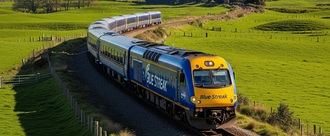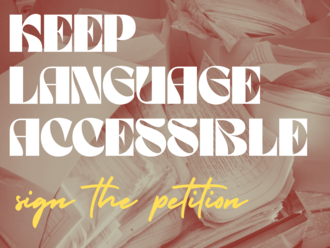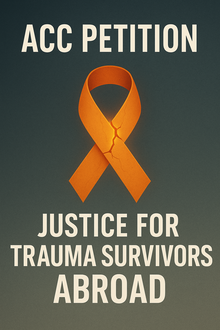-
Say YES to “Access” #YesToAccessNZ | Words shape worldsWhy this matters ““Commit to replacing ‘inclusion’ with ‘access’ on 3 December. Maybe it sticks. Maybe it doesn’t. Maybe it’s the first step toward a more equitable Aotearoa.” Access is a right, not an invite. That’s why. ” 3 December 2025 is International Day of Persons with Disabilities and is the perfect moment to flip the script, start with words, and build the access-first Aotearoa we all deserve. Words shape worlds Did you know? “Inclusion” comes from the Latin includere - in (“into”) + cludere (“to shut, close off”). To include means to be invited into something that was closed to you. You’re still outside - until someone lets you in. Access, from accessus, means “to enter or pass through without barrier.” Not by permission. By right. “Inclusion is margarine. Access is the real butter.” You’ve grown up with “inclusion” as the go-to word. It’s soft. It’s comfortable. It’s on someone else’s terms. There are gatekeepers who “let you in,” “add you in,” “invite you in.” Access is hard - but worth it. It means building places, spaces, and systems from the start—not retrofitting after the fact. It means disabled people aren’t guests. We’re already here and leading. Why Access? In a world where Access is the starting point, not the add-on: • Disabled people live lives of substance, not subsistence • Every space—physical, digital, cultural, political—is designed barrier-free, with disabled people shaping the decisions that affect us • Access is built in: to homes, schools, workplaces, marae, theatres, cities • We are Diversity, not Deficit • We are experts in our own lives, not exceptions to be managed • We inhabit time and space with equity, not as invitees to worlds not made for us • Our identities - not labels - are seen. Our ways of being are sources of insight, not problems to fix This isn’t a dream. It’s the Aotearoa we can build when Access comes first. This isn’t just about ramps and captions Access is multi-dimensional: physical, cultural, emotional, financial, spiritual, intellectual, collective, and individual. Swapping “inclusion” for “access” reframes disability not as a problem to accommodate, but as a matter of rights, design, and justice. “When we say “inclusion,” exclusion still wins. If you can be “included,” you were already excluded. Access, once embedded, cannot be denied. ” Swapping “inclusion” for “access” is more than a language fix. It's an entire mindset shift. What’s the difference? A real life example from what we know - the arts. An 8 - 10 performance season might offer: • 2 sign-language interpreted shows • 1 audio-described show • Wheelchair seating for 4 people per show That’s Inclusion - a few seats at someone else’s table. On their time, Now imagine: • Every performance is NZSL interpreted and audio described • The venue adapts seating in real time for wheelchair users That’s Access - designed with us, led by us, from the very beginning. Inclusion is soft, almost easy, and on someone else's terms, there are decision makers, gatekeepers who 'let' you in, add you in, 'invite' you in. Access is hard, but it means you actively make the effort to build the places, spaces and societies for all from the very start, not accommodate after by invite only. The ask On 3 December 2025, swap “Inclusion” for “Access” in: • Official communications • Policies • Job titles • Public events Witness what shifts. Maybe it sticks. Maybe it doesn’t. But it might just be the spark. We say yes to Access - every day. You can too - even if it’s just for one day. Just like these artists and allies here at this link: Yes to Access. This campaign is disability-led, conceived over two years by disabled artists, researchers and creators with Touch Compass, and supported by allies across Aotearoa. ✊🏽 Words shape worlds. Swap the word. Shift the world. Sign the petition. Share it! #YesToAccessNZ784 of 800 SignaturesCreated by Touch Compass Aotearoa New Zealand

-
Support state housing in West AucklandWest Auckland should be a place where everyone has a decent, healthy, stable and suitable home, in a community where children can grow up in their local schools and where people can put down roots near the services they need to thrive. But right now, people in our community are experiencing high rents, homelessness, overcrowding and substandard housing. This is having an impact on people's long-term wellbeing and the wellbeing of our communities. Successive governments have not done enough to make sure everyone in our community has suitable housing. Now, the current Coalition Government has cancelled hundreds of Kāinga Ora homes, is selling off state housing and making it less available to people in our community. In the West Auckland area we have: • 1,224 households on the Housing Register in (September 2025) • 7,524 people experiencing Severe Housing Deprivation (homelessness) at the time of Census 2023. This is likely to have grown since the Emergency Housing rules have put up barriers to access temporary shelter. • And still, the Government has decided to cancel 12 Kāinga Ora developments that would have provided 425 decent and stable homes to people in our communities. • Some of these cancelled developments are on land that once had state housing and families living there, forced out on the promise of more homes and a right to return back to their communities. Some of these cancelled developments are on land Kāinga Ora purchased to make way for much needed homes close to train stations, parks and local amenities. State housing is a key solution to the housing crisis facing people living in West Auckland. It is the key way governments ensure people and whānau, no matter their income, age or stage in life, have a place to call home. By cancelling state housing, more people and families will be forced into unaffordable private rentals, unsuitable boarding houses and onto the streets. It also means that land will be privatised that could otherwise be returned to hapū and iwi for Māori housing solutions. We are calling on our local MPs to advocate for state housing in our community - to stop state housing land being sold off to investors and developers, and to ensure everyone in West Auckland has decent and stable housing. Cancelled Kāinga Ora developments: • Beauchamp Dr & Reverie Pl, Massey - 65 homes • Totara Ave, New Lynn - 84 homes • Elm St & Racecourse Parade, Avondale - 139 homes • Vallance Pl, Massey - 13 homes • Cedar Heights Ave, Massey - 8 homes • Tabitha Cres, Henderson - 4 homes • Sachel Pl, Rānui - 3 homes (sold) • MacKenzie St, Te Atatū South - 3 homes • Te Atatū Rd - 3 homes • Valonia St, New Windsor - 3 homes • Ulster St, Blockhouse Bay - 32 homes • Marlowe Rd & Bolton St - 68 homes152 of 200 SignaturesCreated by State Housing Action West Auckland
-
Stop Failing our Māmā: Improve Perinatal Mental Health Services in AotearoaWith the repealing and replacing of the Mental Health Act currently taking place, now is the time to get this important issue in front of decision makers to ensure provisions are in place in the new legislation to ensure better outcomes for mothers who suffer from a perinatal mental illness. ⚠️ The Issues: • Capability of perinatal mental health services. Currently, there is a significant shortage of resources, leading to a reactive, crisis-driven approach where individuals often only receive help when they are in urgent need, much like an 'ambulance at the bottom of the cliff' response. This results in many not getting the proactive and voluntary care they require until it's too late, and thus results in compulsory treatment orders, or worst case scenario, tragic outcomes. • Lack of Specialised Care: Current mental health services are insufficiently equipped to support postpartum women, particularly in general psychiatric wards that fail to address the specific needs of mothers. • Trauma of Separation: The separation of mothers from their newborn babies during such a vulnerable time is profoundly damaging to both the mother and the child, exacerbating mental health struggles and hindering recovery. • Need for Accessible Mother and Baby Units: There is an urgent need for mother and baby units that are accessible to all women (including in the regional areas) that would allow mothers experiencing postpartum mental illness to receive the care they need while remaining with their infants, promoting healing and the vital mother-child bond. 💬 Why is this issue important to me? In 2022, after a complicated pregnancy and birth, I unfortunately developed an acute postpartum mental illness. Despite seeking help voluntarily (which included a declined referral to Maternal Mental Health whilst pregnant, requests for support while becoming unwell in hospital postpartum, and two subsequent visits to the Emergency Department where I was sent home), I was eventually sectioned under the Mental Health Act (1992), and separated from my son just three weeks postpartum. I was placed in the general psychiatric ward in Tauranga, a space that was terrifying, unsafe, and not suitable for a new mother experiencing a postpartum mental illness and recovering from childbirth. The experience left me traumatised, with symptoms of PTSD and severe depression for the first two years of my son’s life. Through my advocacy, I’ve since learned that many others have faced similar trauma due to systemic gaps in perinatal mental healthcare. The lack of specialised support has long-lasting impacts, not only on the mother and baby, but also fathers, and the wider whānau. In 2023, around the time of my son’s first birthday, I wrote to the hospital and public health services to genuinely engage about the issues I faced and suggest areas for improvement. My concerns were dismissed. This led to a decline in my mental health and forced me to step back. But in 2024, I read about the Mental Health Bill (the legislative reform of our Mental Health Act) in the Mental Health Foundation’s newsletter – and decided that this was the right time to speak out, while the issue was on the agenda for decision-makers. I made a written submission on the Mental Health Bill in December 2024, and delivered an oral submission to the Health Committee in February 2025. In May, I started an advocacy page on Instagram called @actionformamas. This is where I raise awareness and share content to help break the stigma of perinatal mental illness, including postpartum psychosis, which is a terrifying yet highly treatable perinatal mental illness that carries a lot of stigma and shame. This illness is what I experienced after the birth of my son. ✅ The Solutions • Provide proactive, compassionate, culturally appropriate, and specialist care for women who experience severe perinatal mental illness • Prevent traumatic separations, supporting recovery and bonding between māmā and pēpi • Ensure appropriate and sufficient services are in place to improve mental health outcomes for whānau across Aotearoa By improving perinatal mental health services and funding dedicated mother and baby units, we can ensure that no mother is forced to endure the traumatic separation from their newborn or face inadequate care in a general psychiatric ward. This is essential for the well-being of both mothers and their babies, and it is a necessary step in improving mental health care for all New Zealanders. ✍️ Add your name to support this change. Together, we can stop the trauma and start healing. No māmā should be left behind.1,738 of 2,000 SignaturesCreated by Kristy Maguire
-
Fair Pay and Better Conditions for Aotearoa's Teachers: An Investment in Our FutureTo value our teachers, we must first understand the immense scope of their role. Every day, they are so much more than just educators. They are: • Mentors and Role Models, guiding students through critical stages of their personal and academic development. • Counsellors and Mental Health First Responders, providing a safe space and crucial support for students facing anxiety, stress, and hardship. • Innovators, constantly adapting their teaching methods to cater to diverse learning needs, including those of students with disabilities and learning challenges. • Mediators, skillfully resolving conflicts and teaching students vital social and emotional skills. • Community Liaisons, bridging the gap between school and home, and working closely with whānau to support student success. • Administrators, managing extensive record-keeping, assessment, and reporting requirements, often outside of teaching hours. This immense emotional and administrative labour is performed on top of their core responsibility: to plan and deliver a world-class education. Why Teachers are Essential for Future Generations: Well-supported, fairly compensated, and respected teachers are the foundation of a thriving society. They are directly responsible for cultivating the skills and values our country will need to succeed in the 21st century. • They build a skilled workforce, preparing students for the jobs of tomorrow and driving our economic growth. • They foster critical thinkers and engaged citizens, which are essential for a healthy and robust democracy. • They nurture resilient and empathetic individuals, creating stronger, safer, and more connected communities. When we support our teachers, we are supporting our children and paving the way for a better future for Aotearoa. Please sign and share this petition, together, we can make a difference and ensure better working conditions for our teachers and school staff.61 of 100 SignaturesCreated by Valerie McKernan
-
Hands Off NorthTec - Our People, Our Place, Our Future!Education is essential to our community’s future. Everyone who wants to increase knowledge and skills should have the opportunity to learn. NorthTec isn't just a campus, this is the heart of our region, upskilling in tertiary and vocational education in Te Tai Tokerau. NorthTec is Under Threat - Te Tai Tokerau Needs Your Voice! NorthTec was built to serve our people, but now our future is on the line. If proposed cuts go ahead, we risk losing: • Teachers/Kaiako - the heart of our classrooms • Librarians - keeping knowledge alive • The Student Café - a hub for connection • Student Voice - silencing the voices of ākonga • Student Support Services - academic and pastoral • Disability + Health Services • Administration and support services (ICT, Marketing, Enrollments, Registrar, Business) • Academic Programmes - admin coordination are the heart of front line delivery • Regional Campuses must stay open with support services • International Students These proposed cuts will isolate learners, strip away support and threaten the mana of vocational education in Te Tai Tokerau. Sign now, share this amongst whanau and friends and stand with us here at NorthTec/Te Pūkenga. Your signature adds strength to our movement, join us.460 of 500 SignaturesCreated by Student Voice
-
Keep building state housing in Tai TokerauEveryone in our community deserves to be housed. People should have agency over their housing, and it should be designed to be fully accessible and based on how people want to live. This would strengthen our communities, make life easier for whānau and provide the stability needed for a thriving city. But successive governments have not done enough to make sure everyone in our community has a suitable housing. Now, the National-led Government plan to sell off state housing and make it less available to our communities. This will lead to more people living in unaffordable and unsuitable private rentals, in their cars and on the streets. It also means that state-owned land will be privatised that should otherwise be returned to hapū and iwi for Māori housing solutions. In Tai Tokerau we have: - 1000+ households on the Housing Register - 5856+ people experiencing Severe Housing Deprivation (homelessness) *Census 2023 (grown since data was collected) - Kāinga Ora is selling 59 homes to the private market - And still, this National government has decided to cancel 40 developments, 450 homes that were in the pipeline, that would've housed whānau in need in Tai Tokerau[1] We know from our own history and from overseas, that when governments play a bigger role in building and providing decent and suitable housing, we lay the foundation for thriving communities. We have built state housing at scale as a solution before, and we can do it again. We are calling on Minister for Housing, Chris Bishop; Minister for Māori Development, Tama Potaka; MP for Whangārei, Shane Reti; and MP for Northland, Grant McCallum to advocate for the people of our communities to ensure that everyone has a decent, stable and accessible home, and to stop the sell off. References: 1. Critical housing shortage: Kāinga Ora axes 40 new Northland projects. Northern Advocate, 12 July 2025445 of 500 SignaturesCreated by State Housing Action Whangārei
-
Fix Auckland's Traffic!Why is this important? Auckland should be a city built for people, not for cars - no matter where you live everyone should be able to access great, affordable, and reliable public transport. Every Aucklander knows traffic is out of hand and only getting worse Aucklanders spend more than 80 hours a year in traffic on average[1]. It costs the city more than $2billion dollars a year in lost productivity. An estimated 2,247 premature deaths, 9,400 hospitalizations and 13,200 cases of childhood asthma come from vehicle emissions per year in Aotearoa[2]. Transport makes up 39% of Aotearoa's greenhouse gas emissions[3]. It's also expensive: $7,000 a year to maintain a car, and New Zealand has by some measures the highest car ownership in the world. As Auckland continues to grow it is important that we give people alternatives to car ownership. Trains, Buses and Ferries that are all well connected and affordable can make a huge difference. We know this because it happened before. Back in 1955 when the tram system still existed in Auckland, 58% of trips were made via public transport - now in 2025 it’s down to 5%. It is time to build cities for people and not for cars - sign this petition and together we can make a change! If it's there people use it: in 1955 when the tram system still existed in Auckland, 58% of trips were made by public transport. Now it's just 5%. 40% of commuters from the North shore now use the Northern Expressway buses. It is possible to build a city for people rather than cars. References 1 https://at.govt.nz/media/pqxhk3cn/auckland-transport-cost-of-congestion-white-paper.pdf 2 https://www.esr.cri.nz/media/edmf0i4c/esr-environmental-health-report-public-health-risks-transport-emissions.pdf 3 https://environment.govt.nz/publications/aotearoa-new-zealands-first-emissions-reduction-plan/transport/31 of 100 SignaturesCreated by Seqan George
-
Bring Back long-Distance Passenger Rail to TaranakiRestoring this vital rail link would benefit over 750,000 people by providing an affordable and accessible alternative to air travel and long-distance coaches, which older and disabled passengers often find inaccessible. It would reduce reliance on private vehicles, improving road safety. Reintroducing this service would boost regional economies, uplift tourism in one of New Zealand’s most beautiful and under-served regions, and build a more connected and equitable transport network for all.2,887 of 3,000 SignaturesCreated by Louise James
-
Stop the repeal of the Plain Language Act 2022Aotearoa should be a place where people are encouraged and supported by their government to engage in democratic processes. Where usage of plain language in documents is encouraged, and people have the ability to understand their rights within seconds no matter where they come from or what their background is. Right now our government has chosen to treat accessible language differently to other equitable measures by excluding Plain Language from their budget. Although plain language is a less tangible concept, the importance of it to people across Aotearoa is no less vital than having wheelchair ramps in public buildings, or sign language interpreters during emergency broadcasts. Simple, easy to read language helps our more vulnerable groups in Aotearoa to receive fair treatment in all sectors of government. Over 1.3 million adult New Zealanders have low literacy/numeracy skills, with Māori and Pacific peoples significantly overrepresented in this group. This leads to higher barriers in employment, health, income, and civic engagement for these communities[1]. Furthermore, up to 10% of New Zealanders have communication issues, including difficulties that directly affect reading, writing, or understanding official information. There are also more than 11,530 children with swallowing difficulties, 95,000 people with autism, and 60,000 children with auditory processing disorder, all conditions that can impact effective engagement with complex or non-plain language content[2]. Plain language is also a vital tool for older generations, many of whom are navigating digital systems and filling out important forms independently, often without someone to assist them. Keeping Plain Language requirements in legislation means everyone is considered when the government publishes information. By taking it away, the government is forgetting why it was put into place: to keep all of us in the loop. No one should have to spend hours filling out and decoding benefit forms, immigration forms, justice information, or health information. The budget we pay for should work for us, too. Now is the time for us to take action that will protect our most marginalised brothers and sisters. Action that allows for everyone to be part of the conversation, and puts equitable care at the heart of our government's services. References: 1. An Empirical Portrait of New Zealand Adults Living With Low Literacy and Numeracy Skills. AUT NZ Pathways Research Institute. 2022: https://nzpri.aut.ac.nz/__data/assets/pdf_file/0008/522827/An-empirical-portrait-of-New-Zealand-adults-living-with-low-literacy-and-numeracy-skills_report.pdf 2. Communication and Swallowing Disabilities in New Zealand: Data Fact Sheet 2023. Speech-language Therapists New Zealand. 2023: https://speechtherapy.org.nz/assets/Uploads/SLT-Business-Case-2024/Communication-and-Swallowing-Disabilities-in-New-Zealand-Data-Fact-Sheet.pdf?vid=41,913 of 2,000 SignaturesCreated by Connie Bachle
-
Women, girls & people assigned female at birth with Endo deserve better: Demand guideline review nowNo matter who we are, or where we come from, we all deserve to live a life of dignity, free of pain and struggle. A life where we are believed and we have access to the care that we need. However, there are thousands of us every day who live in the abrupt edges of medical understanding and right now, there are far too many women, girls, and people assigned female at birth are being dismissed, misdiagnosed, or denied access to the care and support they need. [3][6]. At least one in seven women, girls, and people assigned female at birth in Aotearoa live with endometriosis (mate kirikopu), a chronic and often disabling inflammatory condition that causes pelvic pain, fatigue, infertility, and damage to multiple organs [1][10]. Despite this, most with endometriosis (mate kirikopu)are not being taken seriously by our health system. The national endometriosis (mate kirikopu) guidelines, last released in 2020 by the Ministry of Health, were never intended to be formal clinical guidance [11]. They are not mandatory, they are missing key protections, and they are letting them fall through the cracks. The current guidelines are not fit for purpose, they are outdated, non-binding, and were never designed to function as formal clinical guidelines. In practice, this leaves women, girls, and people assigned female at birth with endometriosis (mate kirikopu) facing inconsistent care, delayed diagnoses, and limited access to the treatment they need to live full, healthy lives. The current guidance lacks clear timeframes for action, formal referral pathways, youth-specific approaches, accountability mechanisms, and adequate inclusion of Māori, Pasifika, LGBTQIA+, and disabled communities. Too often, those with endometriosis (mate kirikopu) are passed between GPs and emergency departments for years without answers. The average time to diagnosis in Aotearoa is still 7 to 10 years [2][7]. That means they are missing school, losing jobs, giving up dreams of having tamariki, or falling into depression and isolation before they are even believed [3][5][6]. For marginalised groups, the situation is even worse. Young people, Māori, Pasifika, disabled and gender-diverse people are more likely to be dismissed, misdiagnosed, or denied access to care. [3][6]. That means many healthcare providers don’t follow it, and there are no consequences when patients are ignored, misdiagnosed, or left untreated. We need more than just suggestions. We need mandatory, enforceable standards that every health provider in Aotearoa must follow. We need guidelines that uphold mana, affirm lived experience, and work for all, not just a privileged few who can afford private care or know how to fight the system. Studies show that: • The impacts of Endometriosis (mate kirikopu) go far beyond physical pain, impacting mental health, daily functioning, and overall wellbeing with those affected • Up to 98% of women, girls, and people assigned female at birth with endometriosis (mate kirikopu) experience symptoms of depression, and around 87% experience anxiety [1]. These mental health struggles are often made worse by diagnostic delays, medical gaslighting, and lack of access to effective treatment and support [2][3]. • Women, girls, and people assigned female at birth with endometriosis (mate kirikopu) report a significantly reduced quality of life compared to the general population, especially in the areas of physical function, emotional wellbeing, sexual health, and work productivity [4][5]. This is not just due to pain, but also the psychological toll of being dismissed, misdiagnosed, or ignored by the healthcare system [3][6]. • Research also shows that youth with endometriosis (mate kirikopu)-like symptoms are often told their pain is normal, resulting in long-term harm to mental health, school attendance, and body trust [7]. Without guidelines that address these impacts holistically and offer clear, equitable pathways to care, women, girls, and people assigned female at birth will continue to fall through the cracks. We need guidelines that work in real life, not just on paper. A community-led review by Endo Warriors Aotearoa and our Youth Advisory Board outlines how the current guidance fails us. It shows the harm caused by relying on hormonal contraception as the default treatment [3] [6], how hard it is to access skilled excision surgery [2] [7], and how little support exists for holistic or culturally grounded pain management [3]. He wā tēnei. It is time. Sign the petition today and stand with our hāpori to demand a new standard of care for endometriosis (mate kirikopu) in Aotearoa, a new standard that embeds lived experience, Māori and Pasifika voices, youth insight, and gender diversity into every part of care, a health system that believes us, supports us, and works for us. References: [1] Armour, M., et al. (2019). The prevalence and impact of endometriosis symptoms on quality of life among young women: a cross-sectional study. BJOG, 126(6), 755–759. [2] Ballard, K., Lowton, K., & Wright, J. (2006). What’s the delay? A qualitative study of women’s experiences of reaching a diagnosis of endometriosis. Fertility and Sterility, 86(5), 1296–1301. [3] Culley, L., et al. (2018). The social and psychological impact of endometriosis on women’s lives: A critical narrative review. Human Reproduction Update, 24(6), 625–639. [4] Riazi, H., et al. (2014). Clinical diagnosis of pelvic endometriosis: a scoping review. BMC Women’s Health, 14(1), 73. [5] Jones, G., Jenkinson, C., & Kennedy, S. (2004). The impact of endometriosis on quality of life: a qualitative study. BJOG, 111(4), 410–418. [6] Denny, E., & Mann, C. H. (2007). Endometriosis and the primary care consultation. Eur J Obstet Gynecol Reprod Biol, 132(2), 224–228. [7] Missmer, S. A., et al. (2014). Incidence of laparoscopically confirmed endometriosis by demographic, anthropometric, and lifestyle factors. Am J Epidemiol, 179(6), 721–730. [8] Missmer, S. A., et al. (2014). Incidence of laparoscopically confirmed endometriosis by demographic, anthropometric, and lifestyle factors. Am J Epidemiol, 179(6), 721–730. [9] Zhang, T., et al. (2020). The link between endometriosis and autoimmune diseases. Frontiers in Immunology, 11, 339. [10] Ministry of Health. (2020). Diagnosis and Management of Endometriosis in New Zealand. Wellington: Ministry of Health. “While not a formal clinical guideline, it provides a consensus view of best-practice principles.” (p. 2)5,946 of 6,000 SignaturesCreated by Endo Warriors Aotearoa
-
Justice for Trauma Survivors Abroad: ACC Must Fund Counselling for All Sensitive ClaimantsNo matter who we are or where we come from, we all deserve to heal with dignity and safety at its core. For survivors of trauma, access to services that nurture healing in a healthy way are paramount - and this support shouldn’t end at our borders. I’m a survivor of trauma with an accepted sensitive claim under ACC. But the moment I left New Zealand — for safety, for healing, for survival — ACC cut off my access to the counselling I was promised.I’m transgender, disabled, and neurodivergent. Trauma support isn’t optional for me. It’s survival. ACC’s current policy is cruel. It forces people like me to fly back to Aotearoa — sometimes at great risk — just to be reassessed for support we’ve already been approved for. Others have been left without any care at all, as if their pain matters less once they leave the country. I know I’m not the only one. I know there are others — Māori survivors, queer survivors, disabled survivors — who’ve been silenced, cut off, and left to suffer in silence overseas. This matters because trauma doesn’t respect borders, and neither should care - sign this petition and together we can make a change!10 of 100 SignaturesCreated by Kelly Lynch

-
Healthy Homes for Dunedin StudentsWe all deserve to have safe, affordable and secure places to call our home. But for the people of Dunedin, landlords are lining their pockets and regularly getting away with squalid housing conditions, far from meeting Healthy Homes Standards. The consequences of inadequate housing can be far reaching, affecting people’s health and wellbeing. Many students also suffer from sicknesses, due to the cold, damp and unsafe environments in flats. It’s time for landlords to take responsibility for the properties they profit from. Students shouldn’t have to choose between affordable rent and safe living conditions. The Healthy Homes standard sets out compliance obligations with respect to keeping homes warm, dry and safe. These standards aren’t enough to be written on a piece of paper. They must be enforced by the MBIE.31 of 100 SignaturesCreated by Jackson Phillips

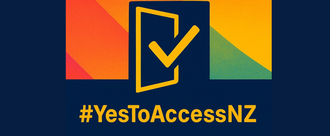
.png)
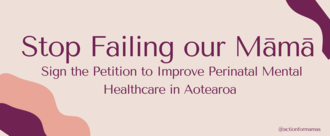
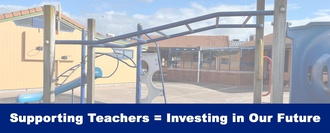
.PNG)

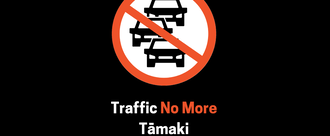.png)
